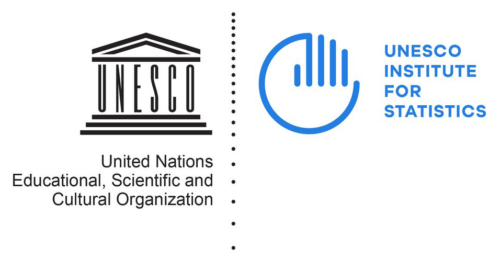The Kazakhstan Study Abroad Market
In this Market Report on Kazakhstan we will cover socio-economics, educational and mobility trends. The presence of natural resources, gas and oil has brought a significant development to Kazakhstan. The stable economy and foreign investment is encouraging students to study abroad and strengthen their English. Bolashak International Scholarship of the President of the Republic of Kazakhstan offers full support for the top 53% of undergraduate and 41% of master’s students. Since 1993, the Bolashak Program has supported over 10,000 students for studies abroad. At this point, more than 90,000 Kazakh students are studying overseas.
As Kazakhstan’s overall economy has expanded in recent years, public expenditure in education has gradually increased to 3.5% of GDP in 2017. 70% of Kazakhstan’s total expenditure on higher education comes from private rather than public sources. By way of comparison, across all OECD countries, 30% of funding comes from private sources. Public funds for higher education places are allocated to the student, rather than the institution; however, the majority of students (71% in 2017)fund their participation in higher education using their own or family funds, which can lead to inequity of access opportunities to higher education. (source: OECD)
There is very high demand in Kazakhstan to study overseas at both undergraduate and graduate-levels. Unlike the rest of Central Asia, Kazakhstan’s per-capita GDP has increased significantly, creating a burgeoning middle and upper-class youth eager to travel and study abroad. In addition, government policy encourages this and has also dramatically increased English-language education nationwide over the past decade. The quality of the students has been improving and with the introduction of new reforms and high quality school technologies, student academic performance has improved by 15-20% since 2010. A recent reform initiative would introduce curriculum taught in English at senior high school classes, resembling education systems in Malaysia and Singapore. (source: privacyshield.gov).
All this and more in the Market Report on Kazakhstan.
Quick facts
Secondary education
Higher education
Upcoming Education Fairs in Kazakhstan
Kazakhstan Education System
Kazakh higher education is taught in 3 languages: Kazakh, Russian and English. Kazakhstan has taken part in Lisbon conference and signed a Convention of Council of Europe – UNESCO on recognition of qualifications, regarding the higher education. In March of 2010, Kazakhstan signed the Bologna Process which was initiated by the European Commission.
Secondary education
Secondary education in Kazakhstan is conducted by general secondary schools, training schools, and lyceums that provide general secondary and initial vocational education, as well as by colleges providing secondary vocational education. There are in total 779 private and state-funded colleges in Kazakhstan that offer technical and intermediate vocational programs.
Admission to Higher Education
Until 2004, students were admitted to higher education based on their Certificate of completed general secondary education (Жалпы Oрта білім туралы аттестат/Аттестат об общем среднем образовании) and entrance examinations were set and administered individually by institutions. Since 2004, there has been compulsory Unified National Testing, or UNT. This national test serves as both:
- a final examination document;
- a higher education entrance examination.
Students sit the UNT for 5 subjects: Kazakh, Russian (depending on the language of instruction), mathematics, history of Kazakhstan, and an elective.
Source: Nuffic
Higher Education system
At present, there are universities, academies, and institutes, conservatoires, higher schools and higher colleges. There are three main levels: basic higher education that provides the fundamentals of the chosen field of study and leads to the award of the Bachelor degree; specialized higher education after which students are awarded the Specialist’s Diploma; and scientific-pedagogical higher education which leads to the Master’s Degree. Postgraduate education leads to the Kandidat Nauk (Candidate of Sciences) and the Doctor of Sciences. With the adoption of the Laws on Education and on Higher Education, a private sector has been established and several private institutions have been licensed.
Over the past few years, we have noticed a growing interest in Kazakhstan for postgraduate, business, and economic programs. In Almaty there is a growing demand for economics and MBA programs. In Astana (nowadays Nur Sultan) we see a strong interest in Law and Political Science programs. The fast paced economic and social developments in Kazakhstan have resulted in a pressing need for skilled labor. This is an important contributing factor to the popularization of overseas education, particularly in the English-speaking countries.
Bachelor programs
Bachelor programs take 4 years to complete. Degree awarded Bakalavr
Master
Master degree programs usually take 1 to 2 years to complete. Admission requirement: a Baklavr or Specialist Degree. Degree awarded: Magistr.
PhD
The doctoral degree (PhD) requires 3 – 4 years of study. Admission requirement: a Magistr degree.
Latest Kazakhstan Higher Education study abroad stats
At this point a total number of 91,860 students from Kazakhstan are studying abroad (for or as part of a degree in higher education) according to UNESCO Institute for Statistics. These are the most popular student abroad destinations among Kazakhstan students:

IB schools in Almaty and Astana
- Tien Shan International School – Almaty – http://www.tienshanschool.org
- QSI Almaty International School – Almaty – https://www.qsi.org/almaty
- Kazakhstan International School – Almaty – https://www.kisnet.org/
- Haileybury Almaty – Almaty – https://www.haileybury.kz/
- International School – Almaty – https://isoa.kz/
- International School Nur Sultan – Astana – http://isa.nis.edu.kz/
- Nazarbayev Intellectual School Nur Sultan – Astana – https://www.nisa.edu.kz/
- International College of Continuous Education – Astana – https://icce-kazakhstan.kz/



